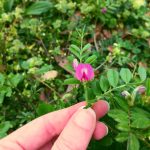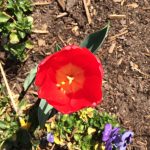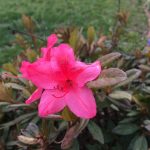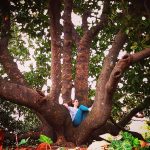Social media is full of suggestions for productive habits to form that are guaranteed to benefit your physical health, mental health, relationships, friendships, parenting abilities, intellect, and the list goes on. But at the same time, a trend has emerged on those same platforms in which everyone shares updates and stories about these supposedly wholesome and helpful habits. As well-intentioned as people may be, the result is still a pivot away from improving one’s life and towards presenting a facade to the public in which you appear to live the perfect life. It becomes more of a burden to keep up with the Joneses than a way to find peace and balance in a busy world.
As a psychologist as well as an environmental scientist, I sometimes take an odd perspective on current issues. I am interested in not only the scientific and ecological factors at play in studying climate change and other problems, but also the way that people respond to different challenges and what the best approaches are to finding solutions. I began to realize the intersection between social media’s fascination with healthy lifestyles/habits and environmental issues during our class activity on Tuesday.
The benefits of going outside and spending time in nature are extremely well-documented (see articles below), but these are usually portrayed as being on a personal, individual level: you are happier, healthier, and more creative. After walking around Durham and parts of East Campus, I got back to my dorm and felt not only relaxed, happy, and motivated, but also more connected with both the natural world and the people around me. I wanted to see if this was a universal experience, so I did a bit of research and found a study by the University of Rochester that found that people feel significantly more energetic when they spend time outdoors. More importantly, though, they had to be among nature to feel the largest effects, not just simply outside.
This led me to wonder if environmental activists could take advantage of these effects through the social media healthy habits trend that I noticed. It wouldn’t be hard to spread the idea of spending time outside in nature as an extremely beneficial activity to incorporate into one’s daily or weekly routine (especially because the benefits are so numerous and well-supported by research!) However, this is one pop-wellness trend that I think would be more effective if it became integrated into the share-everything culture of social media. I noticed that as I tweeted my pictures, I was more deliberate about observing my surroundings, and I found myself paying more attention to both the details of nature and the trash that was everywhere on my walk. On a personal level, I also felt more connected to the natural world that I encountered- and therefore more protective of it.
Starting the trend (perhaps through the #OptOutside hashtag or some other social media campaign) of spending time outdoors and sharing photographs and stories about this new practice on social media could have numerous benefits, even beyond the personal and psychological. Caring for nature becomes a personal investment, as nature has become part of your own life and you are more attached to it. People will also be more aware of the ecological and environmental challenges faced in their area, and if they care more about nature, they may be more likely to start picking up trash, and as Pope Francis accurately described, such small changes can have large ripple effects. Finally, the social aspect of sharing your experiences with others (in person as well as on Facebook, Twitter, or other platforms) will draw others into the trend, thus multiplying the benefits exponentially as it becomes a commonly-encouraged practice.
Of course, this is an extremely idealistic view of how the world works. Many people do not have the time or the ability to regularly spend time in nature, and others may simply have no interest in doing so in the first place. But I’m an optimist, and if this catches on in just a tiny percentage of people, I think it will be worth it. After all, part of enjoying nature involves being a bit of a romantic, a bit of a dreamer, and a bit of a poet. And we all have a little bit of that inside us.
Some of my favorite photos from my wanderings:
Benefits of nature: South University / American Psychological Association / University of California, Berkeley / New York Times / Psychology Today / The Atlantic / National Geographic / VICE







